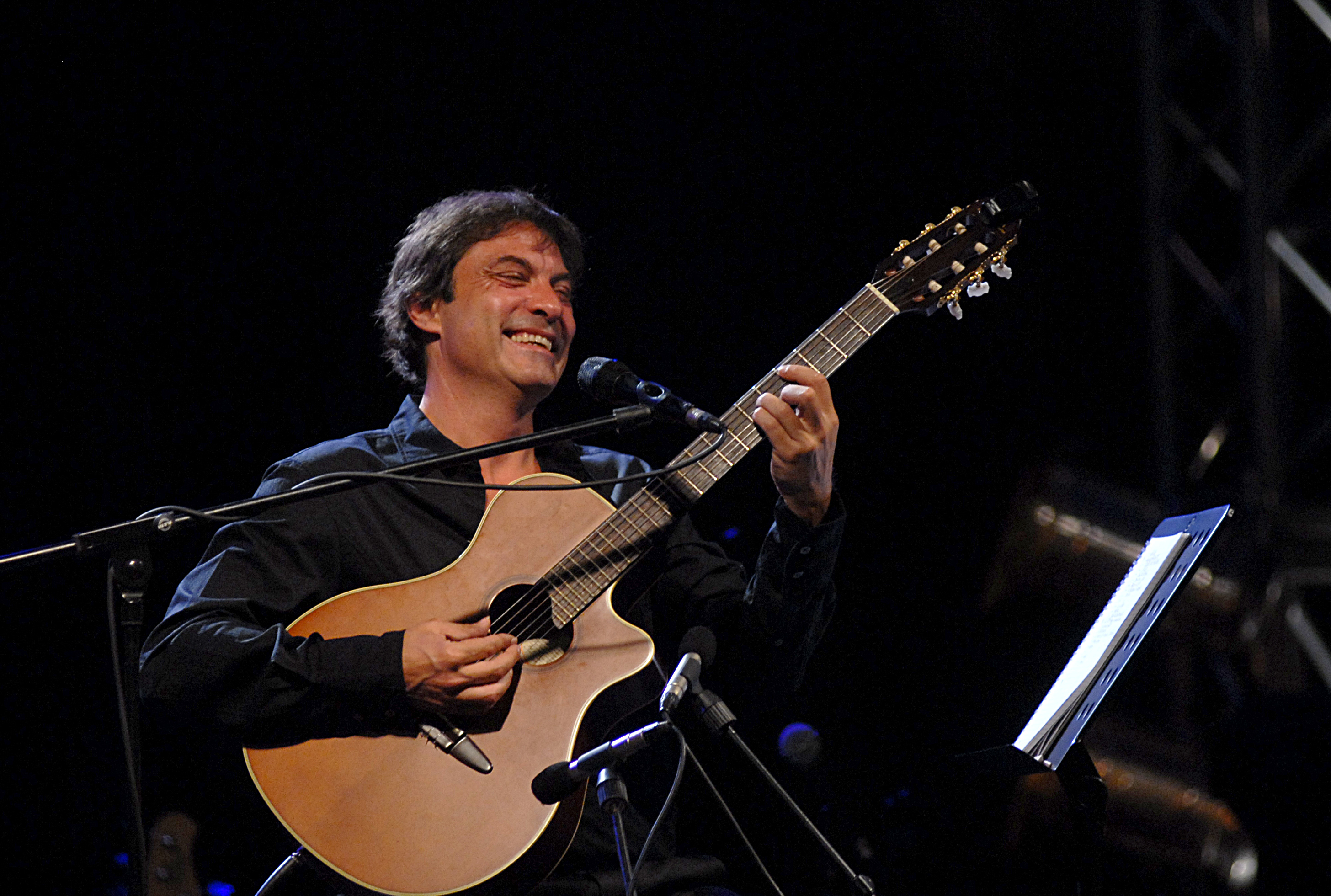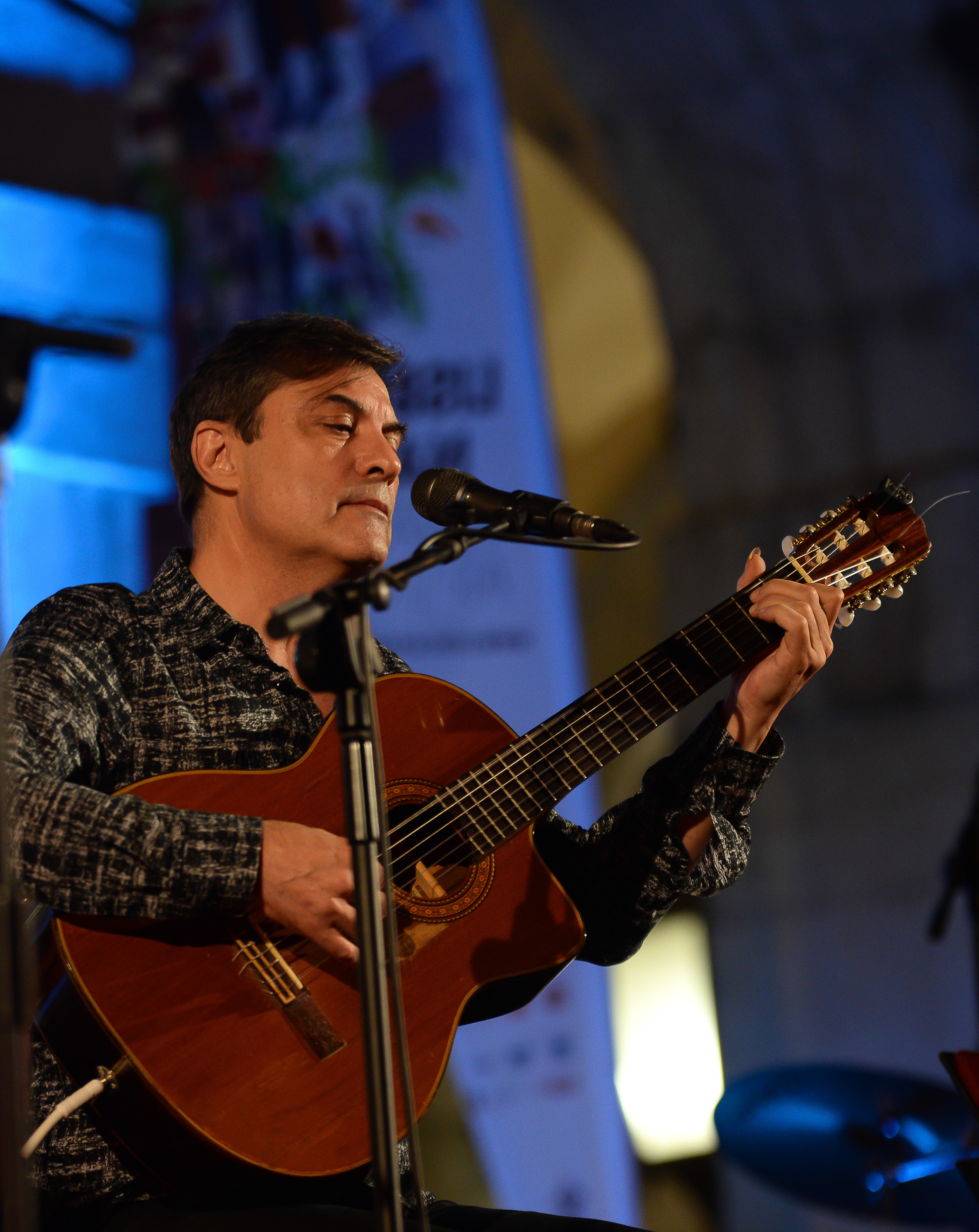Know more:
Jorge Fernando
(N. 8 March, 1957)Jorge Fernando is a musician, fado singer and producer. He is one of the most sung composers of Portuguese music and author of hits such as "Boa noite solidão", "Búzios", "Quem vai ao fado" or "Chuva".
Jorge Fernando da Silva Nunes was born in Lisbon on March 8, 1957.
At the age of four, he already accompanied his grandfather singing fado [Ti Preciosa's husband even accompanied Amália Rodrigues] on the nights in Lisbon. But it was at the age of 16 that he had his first real experience, when he worked with Fernando Maurício, considered the "king" of fado. There he definitely left his footballing career behind, where he reached the junior international.
He was rehearsing in a garage (he was part of the "Futuro" group) and he was told that the singer Fernando Maurício was nearby. I wanted to meet him and once he heard him it was an absolute passion. A little while later Jorge was playing for him.
In the 1970s, he recorded for the Alvorada label the single "Trigueirinha" and another with the themes "Se Me Pedisses Desculpa" and "Semente do Amor".
At the age of 19, he met Alcino Frazão, one of the greatest guitarists in the history of fado, and started playing with him. A year later he was already part of Amália's group after he replaced Alcino Frazão in a performance with Carlos Gonçalves and he invited him to play with Amália Rodrigues.
In 1982 he participated in the album "Fado!" scored by Nuno da Câmara Pereira.
He competed for the Festival RTP da Canção with "White Roses for My Love" in 1983. Despite the low rating, the theme had a great public exposure.
He plays and writes three songs from the album "Sonho Menino" by Nuno da Câmara Pereira.
In 1984 he released the single "Fiz-me Vagabundo". and, with the song "Umbadá" he returns to the 1985 Festival RTP da Canção. He also participates in the OTI Festival.
In 1986, his first LP, "Enamorado" was published, which included themes such as "Mulata" and "Lua Feiticeira Nua".
In 1988 he released the album "Coisas da Vida". Rádio Comercial, by public vote, gives it the Popularity Award.
In 1989 he released his first fado album, "Boa Noite Solidão", in which Fernando Maurício, Maria da Fé and José Manuel Barreto collaborated. Includes themes like "Pode ser saudade" and "Quem vai ao fado".
Participates in the 1990 Festival RTP da Canção with "Via Área".
The album "À Tua Porta" was released in 1991. He produced the album "Notas sobre a alma" by Paulo Bragança and "Notas à Guitarra" by António Pinto Basto.
"Oxála" is published in 1993, a disc highly praised by critics.
In 1997 he released the album "Terra d'Água" and, two years later, "Rumo Ao Sul".
In 2000, the album "Inéditos" was released, recorded live at Tivoli Theatre and, in May 2000, he celebrated his 25th career with a concert in the same venue.
In 2001 the book + disc "Terras do Risco" was released, a project by the Italian pianist Arrigo Cappelletti with poems by Fernando Pessoa, Mário Sá-Carneiro and Eugénio de Andrade. The other co-workers are bandoneonist Daniel di Bonaventura, guitarist Flavio Minardo, cellist Davide Zacharia, Custódio Castelo, on Portuguese guitar and singer Alexandra.
The album "Velho Fado" is published in 2002. On the following year, the Italian city of Recanati honored him in recognition of his talent as a singer, producer, instrumentalist and promoter of new talents (Academia de Marco Poeta).
In January 2004 he is the musical director of the show "Boa Noite Solidão" in honor of Fernando Mauricio and he also participates in the album "A Tribute To Amalia Rodrigues".
In his work "Memória e Fado" he presents some curious duets and collaborations (Lucio Dalla, Ana Moura, Toninho Horta, Egberto Gismonti). Recorded in Portugal and Brazil, the disc also contains four versions. The biggest highlight is an excerpt from a live performance by Amália Rodrigues, recorded in 1994, with the theme "Vida".
In October 2005, he celebrated his 30-year career with a concert at Forum Lisboa, with the participation of Argentina Santos and Celeste Rodrigues.
He collaborates with the rapper Sam The Kid with whom he performs at the 2008 Festas de Lisboa. In addition to the band Sam the Kid, on stage were Custódio Castelo (Portuguese guitar) and Filipe Larsen (bass guitar).
"Vida" was published in 2009, and features several national and international artists, namely: Sam the Kid, Fábia Rebordão, Ana Moura, Marcio Montarroyos, Daniel di Bonaventura and Lucio Dalla. The album also features an unprecedented duet with Amália Rodrigues, recorded at the singer 's home in 1996.
In 2012 the album "Chamamele Fado" is released, in which we can find, once again, several participations of guest artists, Dino Santiago, Guilherme Banza, Nu Soul Family, Fausto Bordalo Dias and Expensive Soul.
On February 18, 2016, he was decorated by the President of the Portuguese Republic with the Order of Infante D. Henrique.

Jorge Fernando, 2008

Jorge Fernando, 2015
-
Memória e Fado Jorge Fernando (Jorge Fernando)